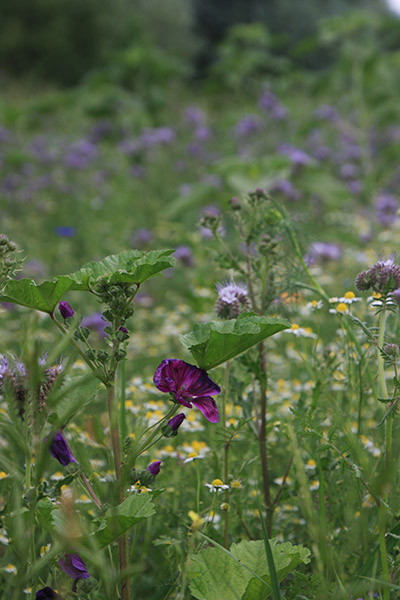
On the 20th May the European Commission adopted a comprehensive new Biodiversity Strategy to bring nature back into people’s lives and a Farm to Fork Strategy for a fair, healthy and environmentally friendly food system. The two strategies are mutually reinforcing, bringing together nature, farmers, business and consumers for jointly working towards a competitively sustainable future.
The Farm to Fork strategy sets concrete targets to transform the EU’s food system, including:
It also proposes ambitious measures to ensure that the healthy option is the easiest for EU citizens, including improved labelling to better meet consumers’ information needs on healthy, sustainable foods.
Lucy MacLennan, CEO of ORC said: “We welcome the EU proposals to put organic farming at the centre of its Farm to Fork Strategy. We would encourage the UK government to match this ambition and recognise the importance of developing the sector, with similar targets. The EU has pledged to collaborate with third countries and international actors to support a global move towards sustainable food systems. Let’s ensure the UK is part of this global movement and not left behind.”
Jan Plagge, IFOAM EU President, stated: “Proposing an EU target for organic land is a landmark decision that puts organic farming at the core of a transition of European agriculture towards agroecology. Organic farming is a successful economic model for farmers with proven benefits for the environment. Making it a cornerstone of a future EU sustainable food system is the right decision.” He continued: “We need to transform EU agriculture if we want to address the climate and biodiversity crisis and make our farming systems more resilient. The F2F strategy provides EU citizens with a clear vision for the future of our food system.”
“However, the objectives of the F2F and EU Biodiversity strategies will only be reachable if they are fully taken into account in the negotiations of the ongoing Common Agricultural Policy (CAP) reform. We must not make the mistake of using Covid-19 as an excuse to continue a backward-looking agricultural policy”, warned Jan Plagge. “This is why the organic movement calls on the European Parliament, the Council and the Commission to fully integrate the objectives of the F2F and Biodiversity strategies into the CAP Strategic Plans Regulation, to raise the level of ambition and make the CAP an effective tool to incentivise and help farmers to transition to agroecological and more sustainable practices. The EU needs a new CAP that rewards farmers for their contribution to public goods such as the preservation of our natural resources.”
In line with the European Green Deal, they propose ambitious EU actions and commitments to halt biodiversity loss in Europe and worldwide and transform our food systems into global standards for competitive sustainability, the protection of human and planetary health, as well as the livelihoods of all actors in the food value chain. The COVID-19 crisis has demonstrated how vulnerable the increasing biodiversity loss makes us and how crucial a well-functioning food system is for our society. The two strategies put the citizen at the centre, by committing to increase the protection of land and sea, restoring degraded ecosystems and establishing the EU as a leader on the international stage both on the protection of biodiversity and on building a sustainable food chain.
The Farm to Fork Strategy will enable the transition to a sustainable EU food system that safeguards food security and ensures access to healthy diets sourced from a healthy planet. It will reduce the environmental and climate footprint of the EU food system and strengthen its resilience, protecting citizens’ health and ensuring the livelihoods of economic operators.
The new Biodiversity Strategy tackles the key drivers of biodiversity loss, such as unsustainable use of land and sea, overexploitation of natural resources, pollution, and invasive alien species. Adopted in the heart of the COVID-19 pandemic, the strategy is a central element of the EU’s recovery plan, crucial to preventing and building resilience to future outbreaks and providing immediate business and investment opportunities for restoring the EU’s economy. It also aims to make biodiversity considerations an integral part of EU’s overall economic growth strategy. The strategy proposes to, among others, establish binding targets to restore damaged ecosystems and rivers, improve the health of EU protected habitats and species, bring back pollinators to agricultural land, reduce pollution, green our cities, enhance organic farming and other biodiversity-friendly farming practices, and improve the health of European forests. The strategy brings forward concrete steps to put Europe’s biodiversity on the path to recovery by 2030, including transforming at least 30% of Europe’s lands and seas into effectively managed protected areas and bringing back at least 10% of agricultural area under high-diversity landscape features.
